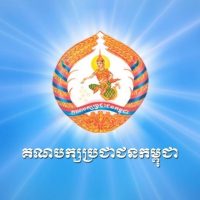Do you have a favourite insect or animal? Chances are that you associate traits of that creature with human characteristics that you admire. There are many insects in Cambodia, colourful insects, large and small; ones that suck, chew and sting. Insects are also sometimes a part of the diet of Khmer people. There is a delicious soup made from a type of ant; crickets, grubs, grasshoppers and some beetles make tasty snacks fried with chilli and spices. As a child I remember going to see a movie about a spider that was a friend of a pig and managed to save the pigs life from slaughter. Stories like Charlotte’s Web, and other more recent animation movies give animals and insects human emotions and attributes. Anthropomorphism is the crediting of human traits, emotions, and thoughts into creatures that are not human. For a culture that is so intimately connected to insects like the Khmer, it isn’t surprising that insects are given human traits like some of the stories we grew up with. The differences however is in how Khmer culture sees characteristics that are admirable in insects is as fascinating as any study of culture. Let us take termites and cicadas as examples. What is the first thought that comes to mind when you think about termites? Our experiences with termites have been very influenced by the extent of damage that they create when they sneakily enter a house that has parts made from their favourite food source timber. It has cost us thousands of dollars encountering them when we lived in the Adelaide foothills. Before coming to Cambodia, we probably wouldn’t find it easy to think of any admirable traits of termites. Cicadas on the other hand are attractive creatures and are impressive how they can make such a sound from such a relatively small body. Coming from a Western culture we learn to think and express ourselves as individuals. This is different in a communal culture like Khmer. The Khmer are able to look at how termites cooperate together in community and notice that these tiny insects are able to build a termite mound more than two metres tall. Cicadas on the other hand are proud and noisy ‘lone-rangers’ that want to be seen and heard! We have found many more differences between our home and host cultures in these past three years.
Sometimes we have found ourselves standing out by our cultural differences in how we tend to operate in community, manage time, what we like to eat, how we like to holiday and even what parts of our body we consider sacred or not. But we have had the opportunity of seeing our home culture through a new perspective and some of the differences we have embraced have been transformative in positive ways. We have had the privilege of being invited into the world of our Khmer friends and beginning to learn how they see community and the world around them. As our relationships have deepened so has the quality of the conversations we can now have about life, relationships and what gives us meaning. One of the hallmarks of living cross culturally is the inevitability of saying goodbye. Next month we leave Cambodia for our first visit back to Australia in three years. Many of our village friends treat us like family members. Now we prepare for the cycle of bittersweet goodbyes and hellos when we leave Cambodia for six months and say hello to our family and friends back in Australia. The cycle repeated in reverse towards the middle of next year as we return to Cambodia.
We are grateful that we have recently shared some more lifegiving communal experiences within some of our Khmer friendships. During a significant Khmer festival, we were invited to travel and share with Rob’s language nurturer’s family visit to his home province. We got to meet the wider family, travel together for adventures and ceremonies and share times to hear stories, laugh, wash, prepare meals, and eat together and go deeper in our relationships. Experiences like this have grown our relationships as we have learned about what is important to our Khmer friends and been an opportunity to explore differences together in our cultures, traditions and beliefs. At one point in our experience we shared how we bless each other every morning before we get out of bed. In a culture that highly values ways of honouring and blessing important relationships, this was significant for our Khmer friends.
As we return to Australia soon, we will take back many new perspectives on many fronts and maybe even down to how we view certain insects! |
|







